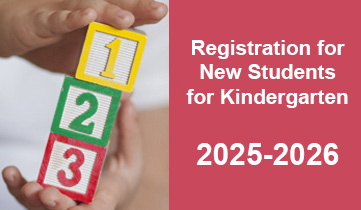Introduction
The national Literacy Crusade 2005-2007 was a special project that made a focused adult and continuing education intervention with the objective of upgrading as many of the targeted 9,381 literate challenged persons in SVG.
This was the first course in the 2005-2007 National Literacy Crusade thrust. A Learner may already know some of these. It is the task of both Learner and tutor to decide together what they have to cover in class to reach the learner’s desired goals.
This course was required prerequisite for participating in other courses such as basic computer literacy.Over 3000 persons consistently attended classes throughout the two year crusade. It is estimated that 6000 persons were impacted by the National Literacy Crusade 2005-2007.
This course must utilise experience of the Learner. The course draws heavily on course outlines from the St. Lucia experience and other countries. This course is not to be rushed. GO AT THE LEARNER’S PACE. Do not lecture, and depend on the chalkboard as your only visual aid. Under normal circumstances (using three days per week, two hours each day) this course CAN NOT be completed in less than four months. In the case of a Learner with special difficulties it may take a longer time.
At the end of this course the Learner should be able to:
-
Read, write and count
-
Comprehend basic instructions and the written word.
-
Do a basic estimate.
Module One: A good Beginning
Unit 1 : Reading in English: It’s left to right, and top-down
Unit 2: Recognise the single letter sound
Unit 3: Shape the letter
Unit 4: Recognise the numerals and number (1-100)
Unit 5: Every day words (To do)
Unit 6: Comprehension: “End the story”
Unit 7: Comprehension: “Order the Story”
Unit 8: Compose a class story
Module Two: Develop your reading Skills
Unit 1: Recognise the letters of the alphabet
Unit 2: Recognise the basic sight words
Unit 3: Recognise simple phrases
Unit 4: Recognise the vowel, digraphs, word attack skill, blends and diphthongs
Unit 5: Use context clues
Unit 6: Compound words and syllables
Unit 7: Recognise common signs, symbols and notices.
Unit 8: Read simple instructions and directions.
Module Three: Develop your Writing Skills
Unit 1: Capital Letters
Unit 2: Forms: Writing your personal information
Unit 3: Forms: Write general information
Unit 4: Write general information
Unit 5: Recognise and write important addresses
Unit 6: Write simple sentences
Unit 7: Write lists, notes, messages, forms (birth paper requests), and slips
Unit 8: Write bank information
Module Four: Develop Oral Communication Skills
Unit 1: Give personal information
Unit 2: Describe everyday experiences
Unit 3: Give oral instructions and directions
Unit 4: Follow oral instructions and directions
Unit 5: Ask questions
Unit 6: Answer questions
Unit 7: Give logical explanation
Unit 8: Picking out facts, opinions, values, from oral information
Unit 9: Pick a topic and speak to us for one minute
Unit 10: Reasoning Skills – Real life situations (listening and talking developed)
Module Five: Numeration
Unit 1: Reading and writing numbers (1-100)
Unit 2: Place value
Unit 3: Add two – digit numbers
Unit 4: Subtract two-digit numbers with or without regrouping
Unit 5: Combine bills & coins to make amounts for e.g. $100.00
Unit 6: Add amounts of money to $100.00: Fraction concepts
Unit 7: Calculate change up to $100.00
Unit 8: Use calculator
Unit 9: Read time from round clock face
Unit 10: Read time
Unit 11: Fraction concepts 1, ¼, ½, ¾, 6/8, etc
Unit 12: Measurements of solids and liquids.
We are helping you
the adult to help the
children and young people


